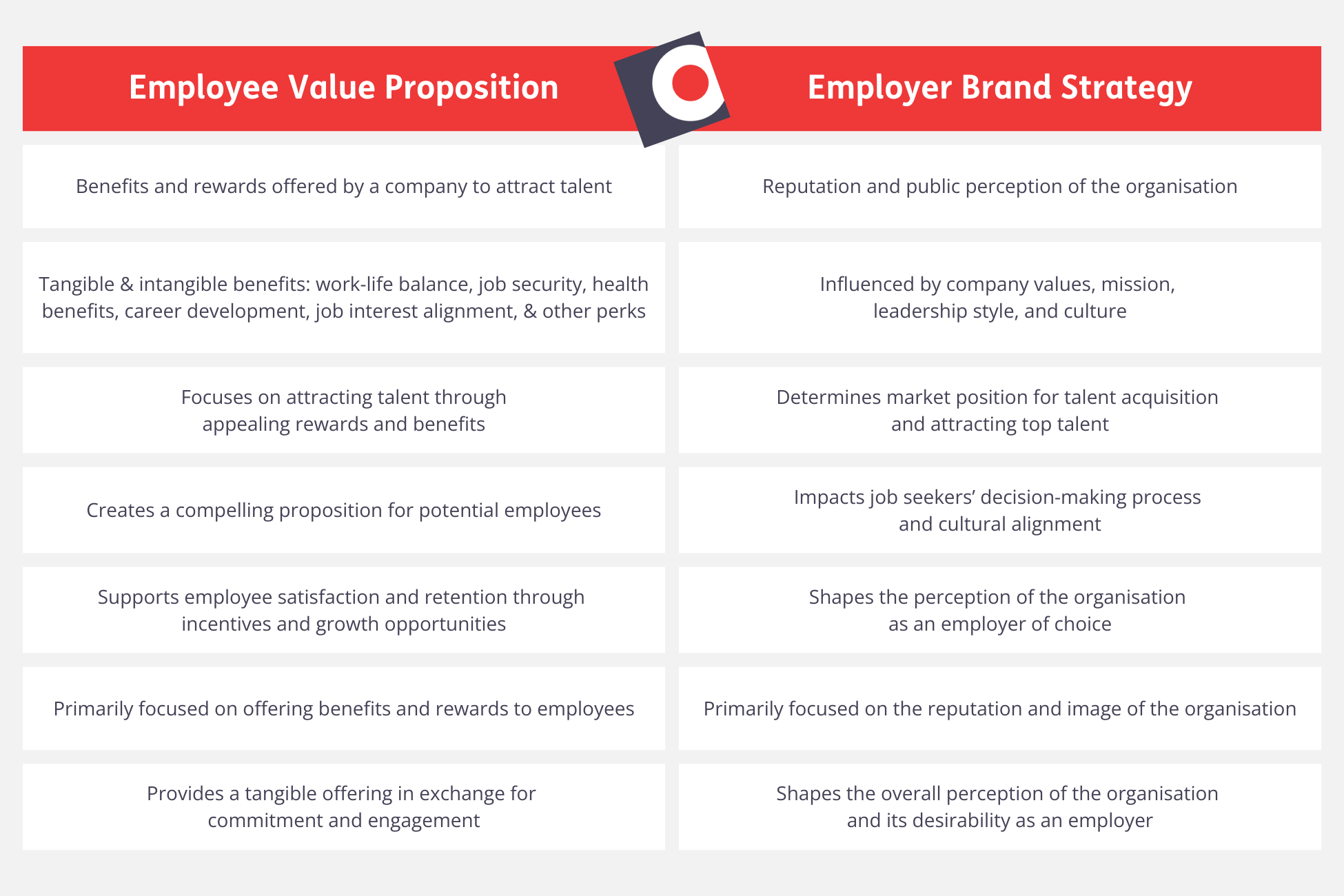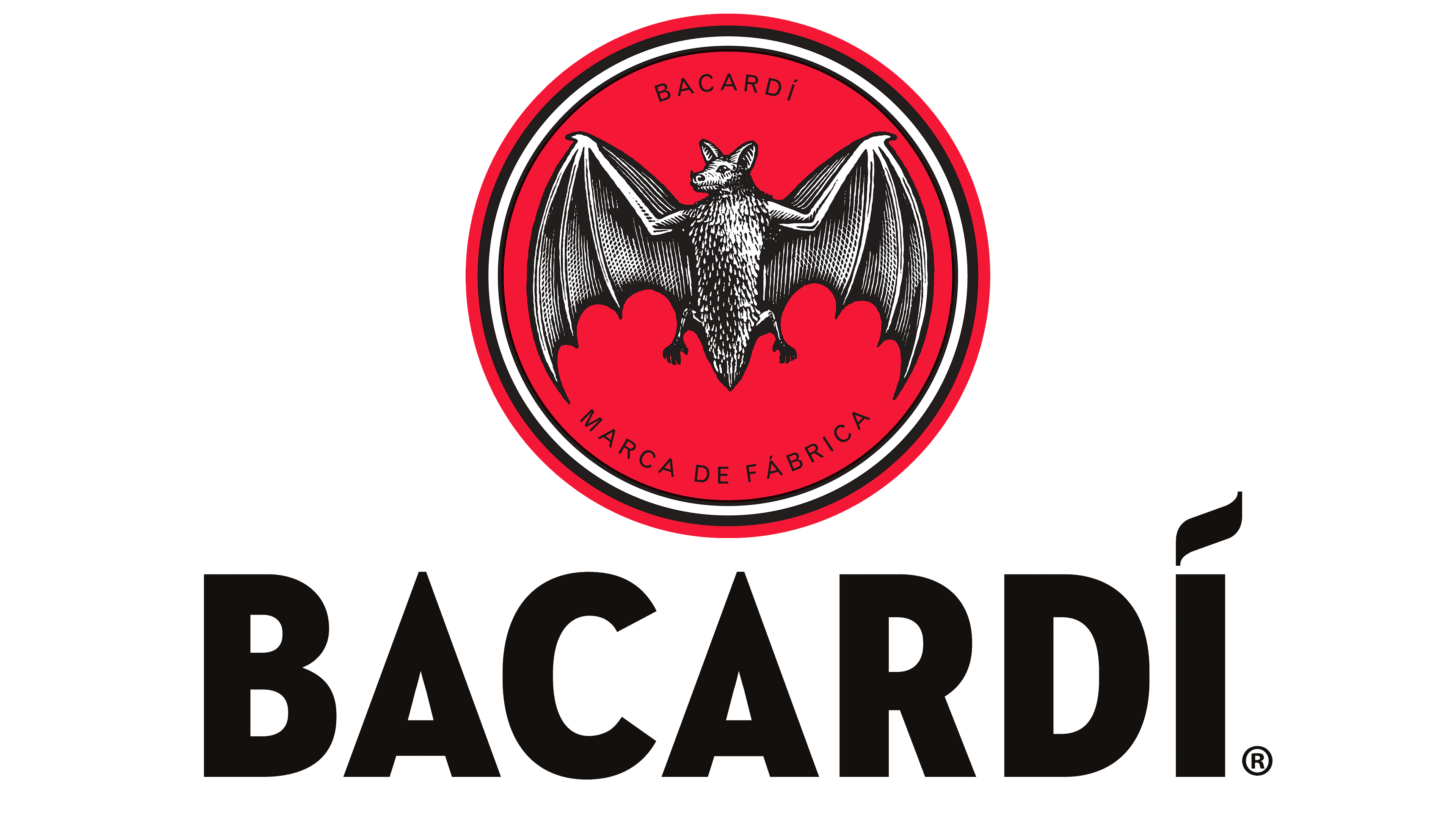Contents
Employees are no longer just workers; employers have to view them as people, and people have feelings.
Developing an employee value proposition should be a priority for organisations, especially if you want to improve your employee brand and company culture.
What is Employee Value Proposition (EVP)?
Employee value proposition, also known as EVP, makes a positive impact on employer brand strategy. But the true meaning of employee value proposition, as it relates to promoting a positive work environment, goes beyond that.
The simplest way to describe EVP is the promise or offer that an employer makes by the time of acquiring a new employee. Employers offer something of value in exchange for the employee’s talent, skill, time, loyalty, and productivity.
Employee value proposition defines the essence of your company. It represents various facets of your organisation that aren’t tangible to prospective employees, such as company culture and your unique company assets.
The Great Resignation is indeed a wake-up call for many employers and HR personnel to deliver a positive work environment that offers flexibility, career development, and a positive employee experience. However, employees won’t know that until they have agreed to fill the position they’re being offered. Hence, you need to develop a unique employee value proposition that is compelling enough to obtain a new hire commitment and boost employee retention, especially the top talent.

Core Components of Employee Value Proposition
The employee value proposition is about the set of benefits you can offer your employees as part of the new hire commitment. It’s what differentiates working for your company over others. A strong employee value proposition can boost the company culture due to the various components.
1. Financial Compensation and Benefits
Whether employees admit it or not, the financial rewards that a company offers are among the first things they consider before committing to a company. Financial rewards can vary greatly from salaries, bonuses and incentives, paid parental leave, health benefits, company sponsored holidays, and more. A competitive compensation and benefits package is critical to building a company’s EVP that will attract top talent.
2. Personal and Career Growth
Employees seek to work with organisations that facilitate their career development and enable them to achieve personal growth. Thus, companies must invest in regular training sessions, coaching and mentorship programs, and career opportunities to enable employees to pursue their career development goals.
Investing in career development opportunities for employees reflects an organisation’s commitment to facilitating long-term success.
3. Work Life Balance
Since the pandemic and the Great Resignation, more employees now value working for organisations that promote work life balance. It is synonymous with a healthy work environment where organisations offer flexible working hours, remote work options, and wellness initiatives to promote employee well-being.
4. Company Values and Mission
Company culture is a critical component of a strong EVP. Your values and mission as an organisation largely dictate your culture because it provides leaders and employees with a sense of purpose. Prospective employees choose companies that prioritise good values and positive work culture to ensure productivity and collaborative teamwork.
5. Employee Recognition
A crucial component of a strong EVP is a good rewards system. While financial rewards like performance-based bonuses and incentives are good, you should also focus on intangible benefits. It’s ideal to hold employee appreciation events and provide opportunities for career advancement. These rewards and recognition opportunities enable employees to achieve something good and challenge themselves to do better.

6. Work Environment
A crucial component of a strong EVP is a good rewards system. While financial rewards like performance-based bonuses and incentives are good, you should also focus on intangible benefits. It’s ideal to hold employee appreciation events and provide opportunities for career advancement. These rewards and recognition opportunities enable employees to achieve something good and challenge themselves to do better.
Employee Value Proposition vs Employer Brand
The terms “employer value proposition” and “employer brand strategy” are two concepts you often hear when talking about ways to improve employee satisfaction and employee retention. It’s also a hot topic among HR personnel that want to attract talent into their organisation. But while they are often used interchangeably, these are distinct aspects of a company’s ability to deliver a positive employee experience upon hiring and keeping employees happy.

Employee value proposition refers to the benefits and rewards that companies offer to attract talent. These rewards are in exchange for the new hire commitment to join the organisation and utilise their skills or knowledge. The core components of a value proposition include intangible and tangible benefits, such as work life balance, job security, health benefits, career development opportunities, job interest alignment, and other employee perks.
On the other hand, employer branding refers to the reputation and the public perception of the organisation. Based on existing perceptions, it will determine your market position as far as your ability to excel in talent acquisition and your ability to attract top talent. Your employer branding can be impacted by various factors, such as the company’s values, company’s mission, leadership style, and company culture. Employees seek a positive working environment and those companies with corporate values they align with. If not, no amount of financial compensation can convince employees, especially top talent, to work with you.
Key Factors That Shape Employee Value Proposition (EVP) in Modern Workplaces
Several factors help shape EVP in a modern workspace. These factors reflect the changing dynamics of the work industry, which now emphasises employee well-being, flexibility, and collaboration. As the need for a compelling EVP continues to be felt in modern organisations, it is crucial to understand the factors shaping employee value proposition in the future.
Digital Transformation
Rapid digitalisation will have the biggest impact on employee value proposition in the future. With organisations becoming increasingly reliant on technology and digital tools, it’s important to embrace digital transformation and employ cutting-edge technological infrastructure to support employee needs.
Diversity and Inclusion
The call for diversity and inclusion in the modern workplace will also have an impact on developing a strong employee value proposition. Having a diverse pool of talent will attract talents from various backgrounds, as it shows your ability to provide equal opportunities for growth and advancement.

Flexibility
Whether or not you offer hybrid or fully-remote work opportunities, offering flexible arrangements to employees will be critical in creating your EVP. Now it is rather a default that you provide your employees with the flexibility to choose a working setup that enables them to achieve the highest productivity and efficiency, whether in the office or at home.
Corporate and Social Responsibility
Employees seek to work with companies that genuinely care about social responsibility and ethical impact on society and the environment. Your company’s mission and values will be put in the spotlight, so make sure you gear your existing perceptions about your organisation to align with the values of your target employees.
Leadership Involvement
Like any other initiative or change implemented within a workplace, developing and implementing compelling employee value propositions also requires the active participation and involvement of leadership.
Leadership provides credibility, direction, and alignment to organisational values and goals. When leaders actively participate in shaping the EVP, they demonstrate their commitment to employee satisfaction and engagement. Leadership involvement also ensures that EVPs reflect the organisation’s strategic objectives and resonate with employees, fostering a sense of trust, ownership, and shared purpose.
Benefits of a Strong Employee Value Proposition
You can enjoy various tangible benefits for building a great employee value proposition. It shows your commitment to delivering a positive employee experience and nurturing brand ambassadors for your company.
Attract Top Talent
A compelling, strong EVP can attract top talent to your organisation. Companies spend lots of resources on talent acquisition to ensure they can get the best employees to join their teams. Once acquired, it’s a matter of how you retain them. Having a strong EVP is one thing, but delivering it is another. A Gartner report shows effective delivery of EVP can decrease annual employee turnover by 69%. Hence, companies must make sure to give the EVPs they promise.

Higher Employee Engagement
The prospect of good financial compensation attracts top employees to join your team, but it isn’t enough. A strong EVP provides prospective employees with a clear understanding of your company’s mission and values. When the expectations of a new employee match the expectations of the organisation they are joining, it shows a stronger commitment to new hires. And the more committed employees are to their job, the more engaged they become in helping your company grow by fulfilling their roles to the best of their abilities.
Cost Savings
A compelling EVP can bring cost savings to your organisation. Talent acquisition and onboarding new employees can be very costly. Therefore, retaining your current employees can save money instead of hiring and training new ones.
Increased Transparency
Stay open and honest about your corporate values and mission. Being transparent about what you intend to offer (and vice versa) to boost employee experience is attractive to prospective employees. Honesty and open communication are also a green flag of a great company culture and a healthy work environment.
Boost Business Performance
Ultimately, the biggest benefit of a great EVP is better business performance and growth. When your employees are engaged and happy with their roles, you can facilitate a productive work environment with higher employee satisfaction and a lower turnover rate. It’s a win-win situation for all parties involved, especially the organisation.
How to Develop a Compelling Employee Value Proposition
Do you want to attract, engage, and retain top talent in your team? It starts with creating a great employee value proposition using these steps.

Conduct Analysis of Current EVP
Evaluate your current EVP and how it aligns with your employer branding. Collect feedback from your existing employees or build focus groups. You can also take advantage of data insights from exit interviews with former employees. These steps will enable you to develop an understanding of your current EVP policies and identify gaps where improvements are necessary.
Identify Your Company’s Unique Value Proposition
Once you have the data about your current EVP, it is time to compare them for effectiveness. If there are any gaps, write down potential improvements that would make your company a more appealing place to work. Is it better financial rewards? Is it a better work life balance? Should you revise your paid parental leave policies? Keep your eye on the goal of improving the overall employee experience.
Communicate Your Employee Value Proposition
Communication of your EVP should be for your internal and external audience. You need your existing employees to become brand ambassadors for your company, showing their full commitment and engagement. When talents see that your current employees are happy and satisfied, they will be enticed to join your team.
You can issue newsletters and press releases about your company’s activities and social impact. It will positively influence the public perception of your employee brand. Showcase your unique value proposition to the fullest and communicate it regularly.
Final Thoughts
Creating your employee value proposition is not a one-time thing. You should update it regularly to reflect any changes in your company and industry and to adapt to the changing needs of the labour market. Your goal is to keep your EVP relevant and attractive to top candidates. It’s no longer enough to have a solid employee value proposition; you must know how to communicate and deliver effectively.
But best of all, keep it authentic. Your value proposition should align with your values as an organisation so that you attract a strong and right employee.
In the post-pandemic world where 1 in 4 workers plan to quit, trusting and engaging leaders who listen to and deliver EVPs their employees need are now more important than ever.Enhance your confidence and ability to lead others, achieve meaningful personal goals, and deliver effective business results; check out our Leadership and Executive Coaching today.

Written by Jayne Ruff
Jayne Ruff, Occupational Psychologist & Managing Director at ChangingPoint. To find out more about how ChangingPoint can help you align minds to transform your business, get in touch.
From the blog

Blog How Leaders Can Create Psychological Safety at Work
While many discussions about safety in the workplace are rightfully centred around physical health and safety, they should be expanded to cover psychological safety at work too.
Read more
Blog Strife or Thrive? 7 Most Common Challenges in Family Businesses
Take a closer look at how tradition, innovation, and change intersect within a family business context.
Read more
Blog The Glass Cliff: A Perilous Path for Women in Leadership
Learn what the glass cliff is, how it affects women’s leadership positions, and what we can do together to create more inclusive workspaces.
Read more






